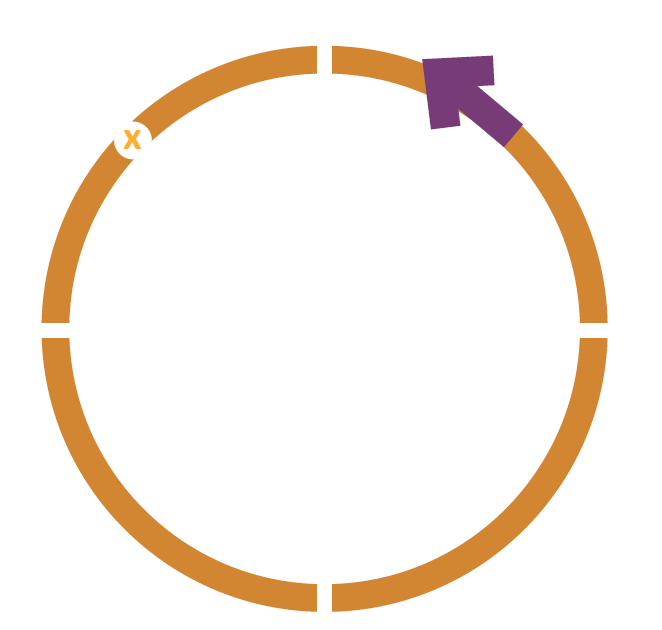Category > Looking after yourself, Relationship with yourself
Living Life in CYCLES
What is a cycle?
Why follow a cycle?
Explore your life living in cycles
Everything in life has a cycle - You too
In the great civilizations of the world, life was thought of in terms of cycles. This derives from the fact that we live on a planet that permanently spins on an axis (rotation) and also revolves around the sun (relocation).
The rotational movement produces what we know as the solar day, which is 24 hours (the time it takes for the earth to rotate around itself in a west-to-east direction, i.e. anti-clockwise).
These two continuous movements form the basis upon which human beings have structured their lives since documented time began (day and night and the seasons of the year).
We can look at how life is ‘organized’. The day has 24 hours. There is a cycle of day and night, as well as the weeks, months, years and four seasons which are also cycles.
We go over and over the same points again and again!!!!
Every year we celebrate Christmas, but each time we have the possibility to change how we do it. For example, if one year you felt it was busy always doing lots of things with no space or time for you the next year you can change this so the holiday period is not always busy and you plan and make space/time for you. Life and death is a cycle, as well as the process of aging. The stars and the moon also follow a cycle. The moon has a cycle similar to women’s menstrual cycle, which is the internal cycle of every woman.

We can graphically represent a cycle by means of a circle. In a circle there is no beginning and no end. There is constant movement in a certain direction. If we move in a circle, and choose any random point (X) we will see that we will pass the same point over and over again.
Passing a point over and over again gives us an important reference point. It allows us to ask questions about ourselves and to make comparisons and changes were needed. For example, every day when we get up or go to bed, or any time in the day, we can ask ourselves how we are now compared to the same time the day before.
Thinking in cycles is great for learning from our own experience.
Following a cycle helps us explore the possibility that life is not a random succession of unconnected events, but a constant experience of the choices we have made.
- Cycles offer us a space to review how we are living and to wipe the slate clean, deepen or start afresh in the next cycle.
- Cycles can help us learn to actively observe the patterns we unknowingly repeat every day. Through that, we can change our patterns by increasing our level of care for ourselves and others.

It is a good time to change our way of thinking:
Observe your feelings, moods, emotional reactions, thoughts, actions, words, and intentions.
Observe how your environment can affect how you feel.
Observe how you treat yourself and how you treat your body and evaluate when you can be more gentle with yourself, and spend more time taking care of yourself.
Observe how habits trap you and start changing them.



